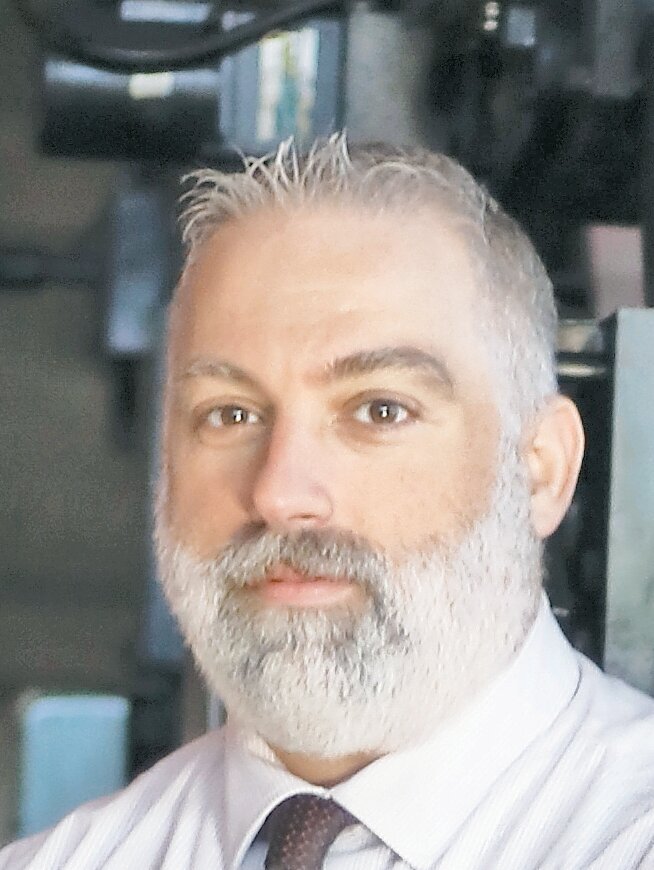‘Hunger in America is the ultimate obscenity’
My parents were worried the moment I laid eyes on the apartment for the very first time.
It was the entire top floor of a car dealership just off what would eventually become Interstate 86, at the edge of the Finger Lakes region upstate. This would be my first apartment — my first home outside the family home where I grew up in Pennsylvania.
But that’s not why my parents were concerned. My new job — as a sports editor for a community weekly newspaper in the small city of Bath — paid $200 a week. And the rent for this apartment would eat up a good chunk of that.
I wasn’t listening, however. I was young. The world was mine to conquer. And I was able to dive headfirst into my chosen career while still quite literally a teenager. It was supposed to be nothing but easy sailing from this point, except it wouldn’t be anything close.
Of course, I was wrong, and my parents were absolutely right. I couldn’t afford the apartment and simply living. Every other week, my bank account would dwindle to almost nothing, days short of being replenished with another paycheck.
I had to pay my rent. I had to put gas in the 1982 Chevette that I had bought a year earlier with my freelance money. I had to keep the electricity on and the water running. All that was left to sacrifice was probably the one thing I needed the most: food.
By the time payday finally arrived, I could have gone as long as three days without eating. And you truly don’t know suffering until you feel hunger. Real hunger.
My paycheck would hit my bank account at 11 a.m., and I would race to the nearby Burger King — my car running on fumes — to sit in the drive-thru, praying for speedy service. Then I would pull into the parking lot and devour every morsel of my lunch. Tears would streak my cheeks through each bite of the Whopper.
When we think of hunger, it makes sense that our minds jump to extremes, conjuring images of children — primarily in other countries — literally starving. And that is indeed horrific. At the same time, however, we can’t lose sight of the fact that hunger exists in so many forms. And that so much of it is far closer to us than we might think.
A popular term for it is “food insecurity,” but let’s simply call it what it is: hunger. And it affects those of all walks of life, from children to our senior citizens. Island Harvest — the largest food bank on Long Island — delivers millions of meals each year, but that’s still not enough. Long Island Cares — founded by the late singer and songwriter Harry Chapin — estimates that as many as 230,000 people go hungry on Long Island every day.
Across the country, millions of people are a job loss, a missed paycheck, or a single medical emergency away from hunger, according to Feeding America. And it affects some of our populations — our children, our seniors, and many of our minority communities — disproportionately more than the rest of us.
Hunger is a silent predator, existing so close to us, yet so difficult to see. It could be your child’s best friend next door. It could be the nice retired lady around the corner who enjoys talking to neighbors from her porch. It could be the young professional stepping out into the world for the first time.
But we don’t need to see it to help. We don’t need to experience it to help. It’s out there. It’s terrible. And yes, we can make a difference.
Island Harvest and Long Island Cares are just two of many area organizations that are fighting hunger. You can give money, non-perishable food, or even your time. Visit IslandHarvest.org or LICares.org. Or just look around your own neighborhood — there’s likely someone already battling hunger. And if there isn’t, maybe it’s your time to step up.
“Hunger is an obscenity, and hunger in America is the ultimate obscenity,” Chapin once said, echoing the words of Anne Frank, who truly knew hunger while hiding from the Nazis during World War II.
Yet even in those darkest of times, Frank remained optimistic: “How wonderful it is that nobody need wait a single moment before starting to improve the world,” she wrote.
Don’t wait a single moment. Let’s wipe this obscenity of hunger from our society once and for all.
Michael Hinman is the executive editor of Herald Community Newspapers.

 43.0°,
Partly Cloudy
43.0°,
Partly Cloudy 




